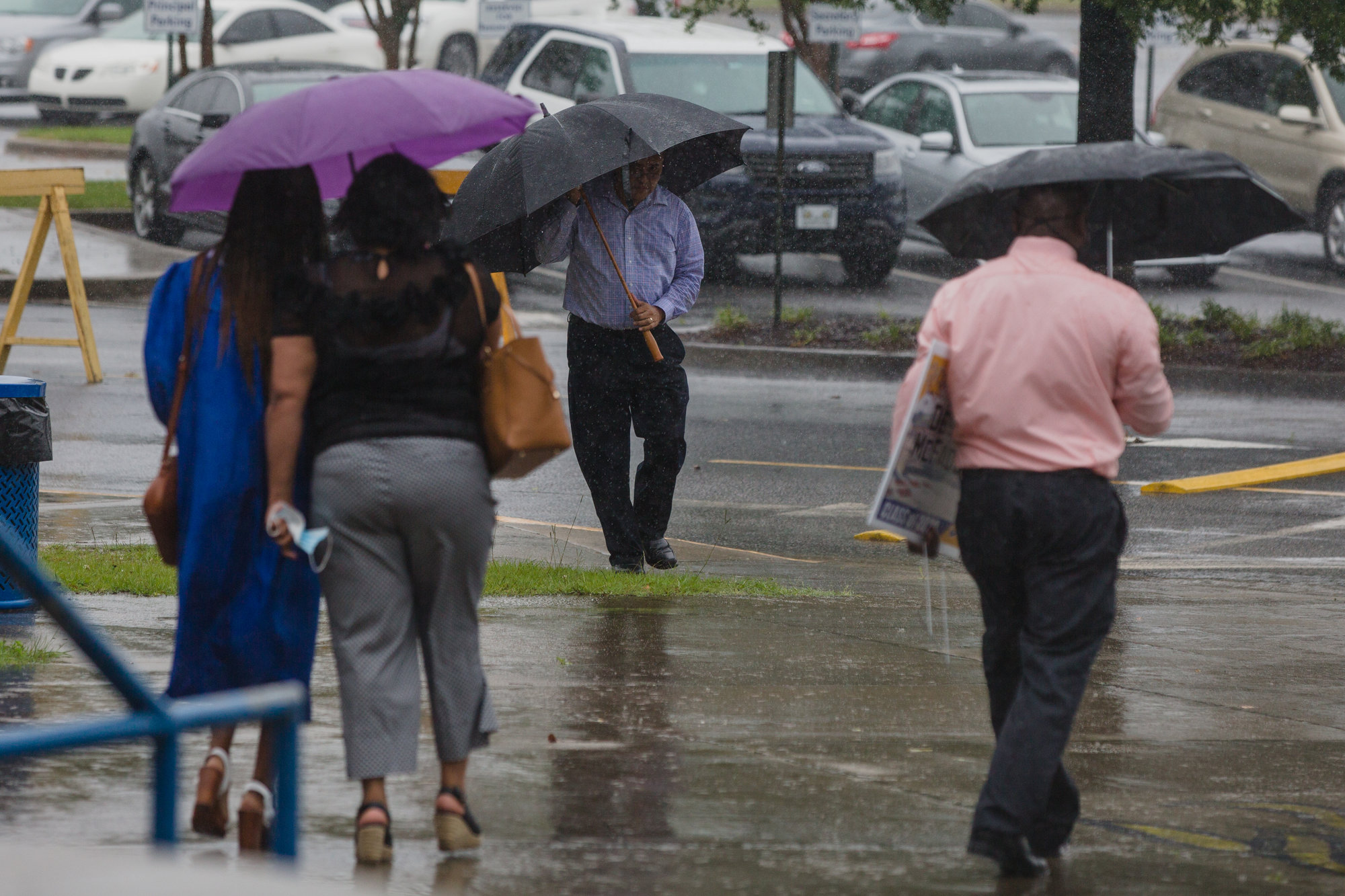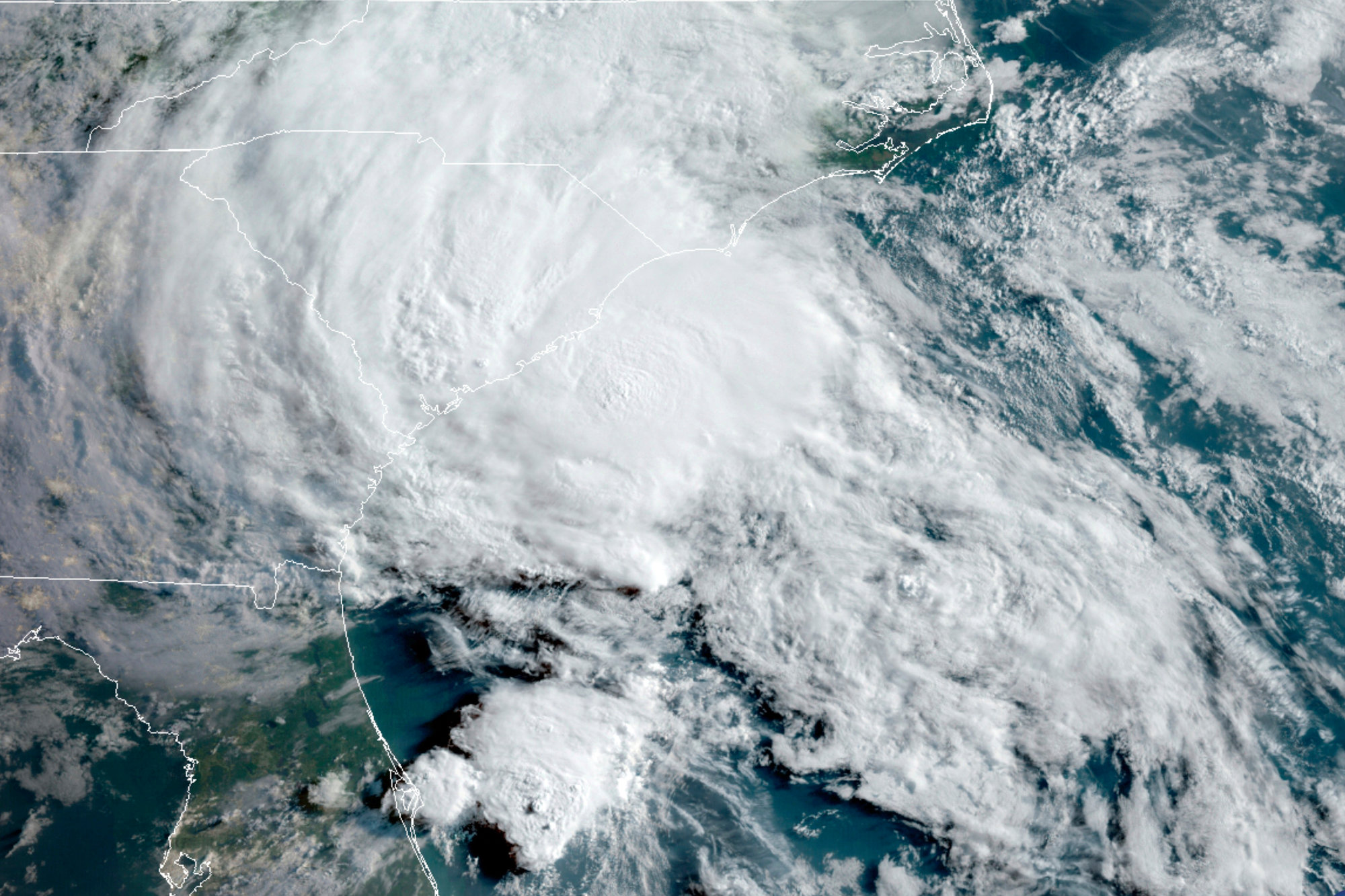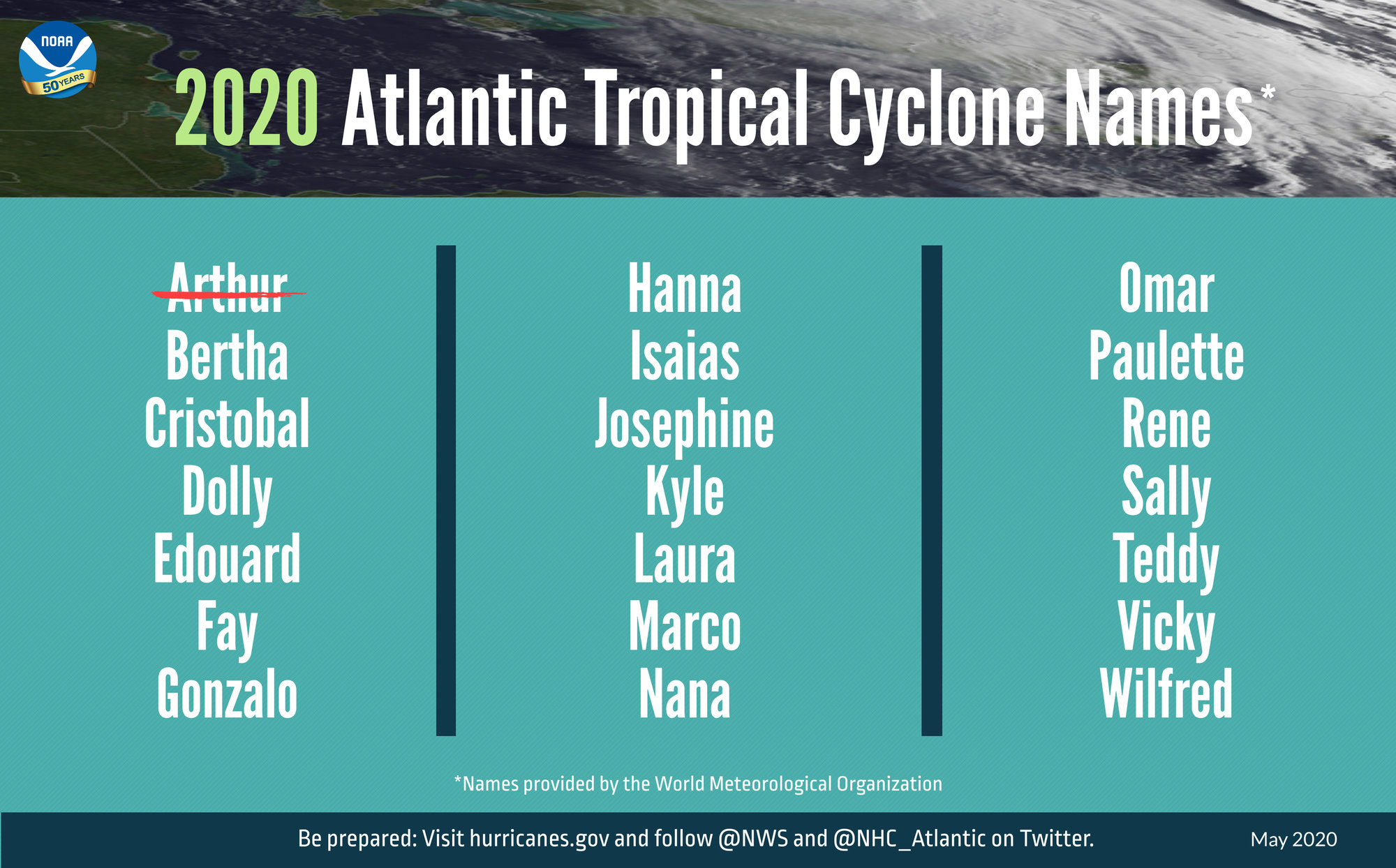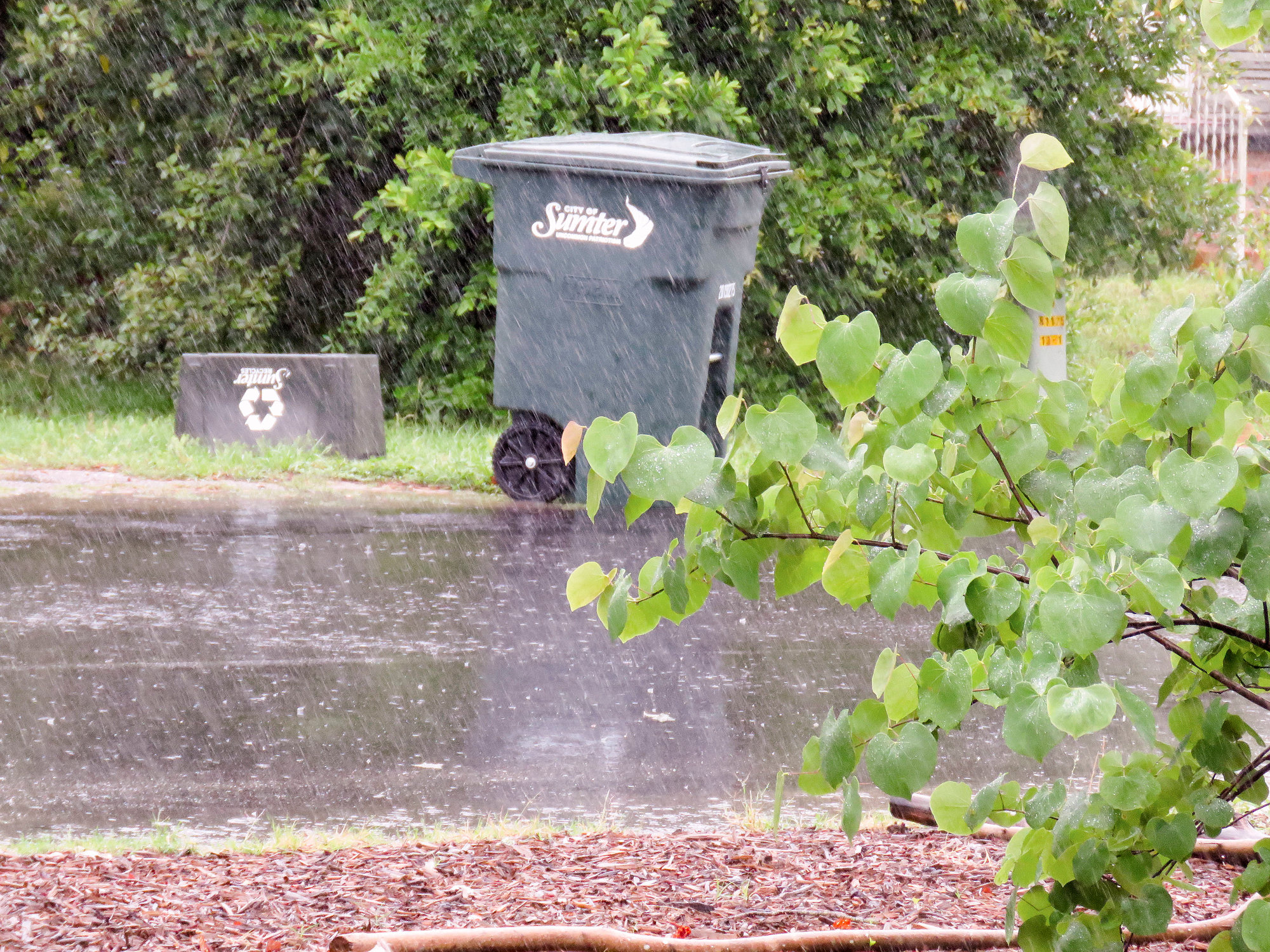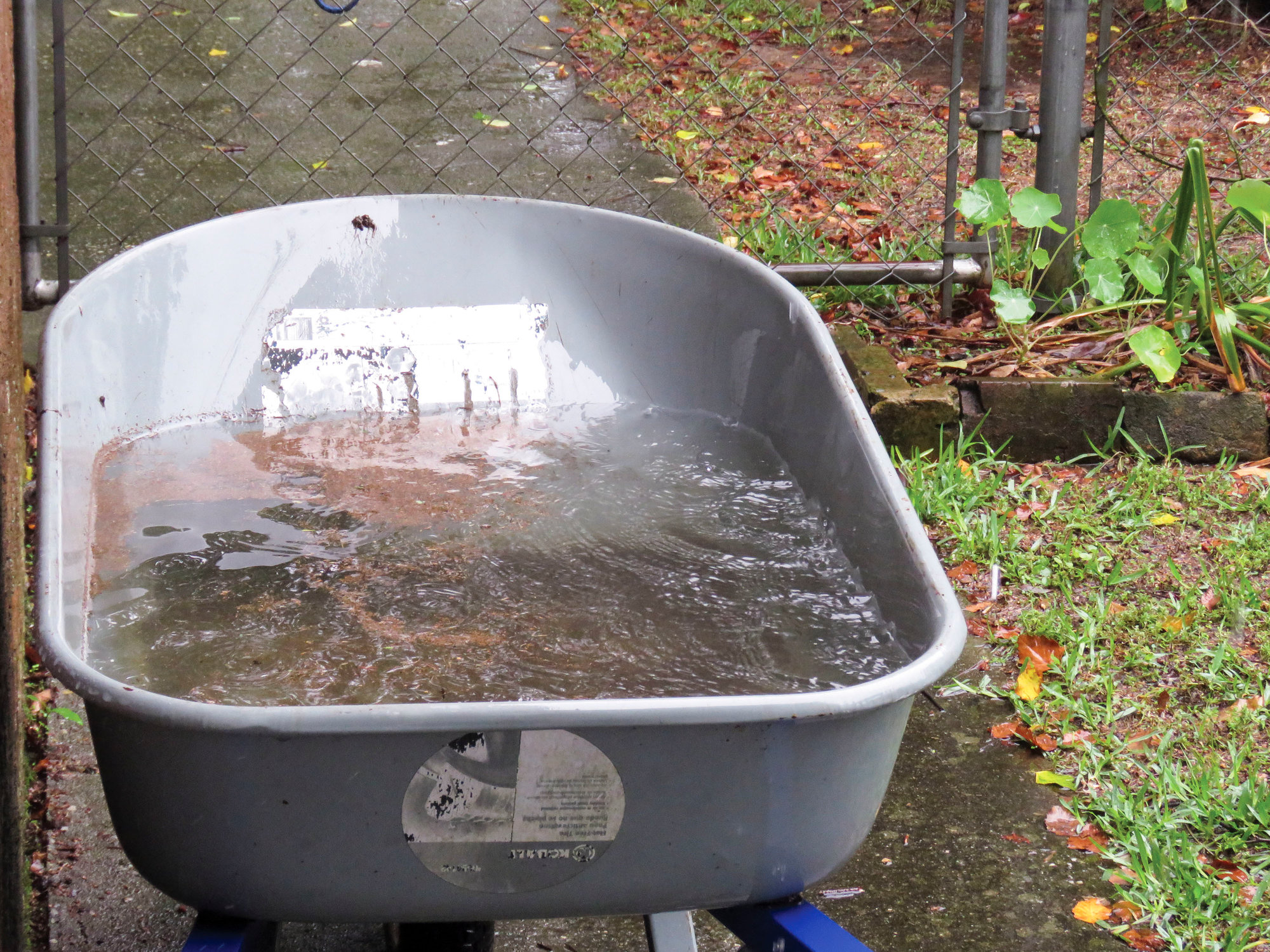Surprise Tropical Storm Bertha unloads rain on Midlands, coast
kayla@theitem.com
It may have seemed the onslaught of rain simply continued Wednesday, but it just so happened the drops falling stemmed from a tropical storm that formed, made landfall and dissipated in the course of a day's work.
Bertha became the second named storm of the 2020 Atlantic hurricane season before the season has even officially started. It dumped heavy rainfall across the coast and Midlands with maximum sustained winds near 50 miles per hour before quickly downgrading to a tropical depression as it headed north toward portions of North Carolina and Virginia.
It was named about 8 a.m., made landfall near Mount Pleasant by 9:30 a.m. and was no longer strong enough to be called a tropical storm by 2 p.m. The National Hurricane Center stopped calling it a tropical depression at 5 p.m. and stopped issuing advisories.
According to The Associated Press, the state Department of Natural Resources called it a "sunrise surprise."
The main threat to the area was flash flooding, with the ground already being saturated and local river levels already high.
Like during almost all storms with heavy rain, areas with poor drainage around the coast and Midlands flooded and ponded, with reports of more than a foot of water at the bridge under U.S. 521 in Sumter and, according to AP, flooded streets in Charleston that do so an average of more than once a week.
Bertha marked the sixth-straight year that a named storm has developed before the season starts on June 1.
Earlier this month, Tropical Storm Arthur brought rain to North Carolina before moving out to sea.
According to The Associated Press, the last time there were two named storms before June was in 2016, according to Phil Klotzbach, a research scientist with Colorado State University's atmospheric science department. It also happened in 1887, 1908, 1951 and 2012, he said.
"Most of these early season named storms form, at least in part, from non-tropical or subtropical processes and don't necessarily imply anything about the remainder of the season," Klotzbach said in an e-mail to The Associated Press.
NOAA predicts above-normal 2020 hurricane season
The pre-season may not be a good predictor of what will end up happening, but the National Oceanic and Atmospheric Administration is predicting an above-normal 2020 Atlantic hurricane season.
An outlook from the NOAA Climate Prediction Center, a division of the National Weather Service, is predicting a 60% chance of an above-normal season, a 30% chance of a near-normal season and a 10% chance of a below-normal season, which runs from June 1 through Nov. 30.
The agency is forecasting a likely range of 13-19 named storms, meaning they have winds of 39 mph or higher. Of those, six to 10 could become hurricanes (winds of 74 mph or higher), including three to six major hurricanes (Category 3, 4 or 5, with winds of 111 mph or higher).
According to the agency's release of the season forecast on May 21, an average hurricane season produces 12 named storms, of which six become hurricanes, including three that are major hurricanes.
"As Americans focus their attention on a safe and healthy reopening of our country, it remains critically important that we also remember to make the necessary preparations for the upcoming hurricane season," Secretary of Commerce Wilbur Ross said in the May 21 news release. Several climate factors are driving the "strong likelihood for above-normal activity in the Atlantic this year."
There is not expected to be an El Nino condition to suppress hurricane activity, and above-average sea surface temperatures in the tropical Atlantic Ocean and Caribbean Sea, combined with other conditions out of the Atlantic and African waters, are producing similar conditions that have led to more active seasons since 1995, according to NOAA.
"Social distancing and other CDC guidance to keep you safe from COVID-19 may impact the disaster preparedness plan you had in place, including what is in your go-kit, evacuation routes, shelters and more. With tornado season at its peak, hurricane season around the corner, and flooding, earthquakes and wildfires a risk year-round, it is time to revise and adjust your emergency plan now," said Carlos Castillo, acting deputy administrator for resilience at FEMA. "Natural disasters won't wait, so I encourage you to keep COVID-19 in mind when revising or making your plan for you and your loved ones, and don't forget your pets."
More Articles to Read

